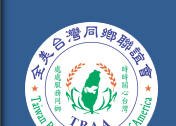|
1) Definition of
“TongShiang”
This association
recognizes “Tongshiang” as those who, through the living experience
in Taiwan and subsequently derived connection with one another as a
basis, without regard to provincial origin, only that they were
born, resided, educated, or worked in Taiwan, or depended upon a
fellow citizen of Taiwan, are all equally deemed as “Tongshiang”.
2) Origin of the
Establishment of the Association
Historically, the
multitudes which came to the U.S. from Taiwan formed, among the
various societal ethnic groups, a specially appointed branch, which
has the same ancestral origin and cultural background, possesses
relatively high average education and career, and in particular
maintains the highest quality of personal integrity. Regrettably,
maintaining superior qualifications and characteristics was not
reflected accordingly on its political and social status quo in the
U.S., and incidents of contempt or discrimination against this group
were reported at times. The cause was the reality that until now,
there has been a lack of powerful civil organization for the ethnic
group to safeguard their due rights by banding them together to
unleash the influence of the group as a whole.
1978 was
right before the Carter Administration recognized the Chinese
Communist Party's regime. It was also when the Republic of China
government suffered the severest attack diplomatically, these
compassionate “Tongshiang” in the U.S.: Su Chin Hsiang (蘇錦鄉),
Kao Tzu-Min (高資敏),
Chiu Wu Shiong (邱武雄),
Chiu Hungdah (丘宏達),
Chang Shiao Ti (張孝悌),
Chen George P. (陳博中),
Shi Wei Jen (施維貞),
Dong Hou Ji (董厚吉),
Tseng Yi Liang (曾義良),
Kao Ying Chi (高應奇),
Wen Shi Song (溫世頌),
etc, started the organization [Taiwan Benevolent Association of
America], to [safeguard civil rights, solidify due status, promote
progress, and facilitate social volunteering and interactions] as
the fundamental goals, to serve the need, subjectively or
objectively (autonomously or reactively), of the “Tongshiang”. These
years of incessant organizational growth has resulted in a strong
network throughout the U.S., which provides an effective venue for
the group as a whole to strive through team work and maximize its
capability.
This organization
was originally registered in Washington D.C. as a nonprofit
organization, headquartered in Washington D.C. Later, due to an
inability to maintain nonprofit status in Washington D.C., the
organization was re-registered in the State of Nevada in November,
2006. In addition, an application for the 501(c)(3) nonprofit
organizational status was being planned.
3)
Characteristics
(1) This
organization is a nonprofit organization.
(2) This
organization serves an ethnic group in the U.S. and has chosen to
focus on striving for the benefits of Taiwanese “Tongshiang” in the
U.S. by using the superior qualities of this generation to
consolidate as early as possible our social status so that those
“Tongshiang” may establish a reasonable position it deserves and
also progress healthily in the ethnically diverse and highly
competitive society in the U.S.
(3) This
ethnic-group organization cares deeply about the homeland of Taiwan
but does not get involved with the local politics of the homeland.
(4) This
organization advocates peace and harmony which supersedes executive
differentiation in provincial origin in order to pursue mutual
promotion, solidify the power of the group, and forge a future
together.
4) Direction of
Activities
(1) Strengthen
ties with the United States governmental, academic/scientific,
economic, and media communities to build an advantageous position
for Taiwanese “Tongshiang” in America.
(2) Services to
promote increased understanding of laws, medical knowledge,
entrepreneurship, education, family life, and healthy entertainment
as well as activities to foster networking.
5) How You Can
Contribute
(1) Join as a
member to increase our organization’s bargaining power.
(2) Publicize in
the US the excellent quality and outstanding contributions of the
Taiwanese “Tongshiang”.
(3) Contribute
services, networking events, or ideas within your own abilities and
means.
(4) Donate to the organization so that we can
provide more services and expand.
|







